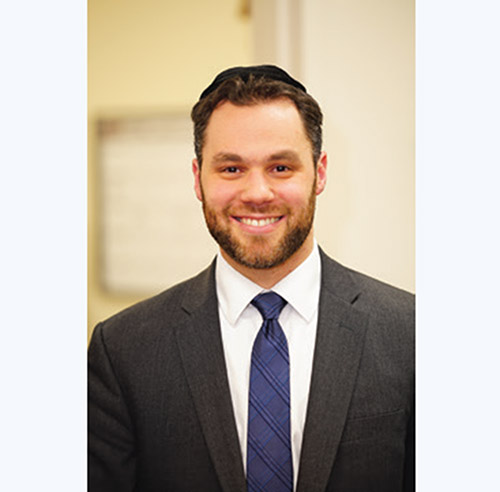
The stories we tell ourselves about the world and our place in it lock us into a single way of thinking: Experts are never wrong. Gifted students excel and embrace new opportunities. At-risk students are always on the precipice looking down. Slower students face constant challenges. Great educators teach the best classes. And successful parents have well-adjusted children.
But the world is multi-faceted, anything but simplistic, and the norms of yesterday are the debunked myths of tomorrow. To truly succeed in this environment, to honestly master our greatest potential, we need to free our minds from the limiting stories we tell ourselves.
The theme of the first-ever Prizmah national day-school conference was storytelling. Three days of enlightening sessions on the subject of stories and how they relate to the best of education made me ask myself: How do the stories we tell ourselves lock us into a single way of thinking? The answer shocked me at every turn. In almost all instances, the stories in my mind created artificial boundaries, limitations, deficiencies in the ability and character of myself and those around me.
An educator’s job is to unlock the potential of every student. A principal’s primary task is to help members of his or her team develop new skills, adapt to changing environments and find a theretofore undiscovered capability. In times of crisis, a leader’s own skills are challenged as he or she helps others reach new depths of inner strength. But if the stories we tell ourselves place limitations on our skill or restrictions on the competencies of others, then none of us will ever achieve our true potential. To do so, we must free ourselves from these narratives.
Three days at the Prizmah conference returned me to my roots as a student and educator. We learn from an early age to ask questions and see limitless possibility. The foundation of our mesorah is learning through question and answer. The Torah itself exhorts us to ask questions and seek answers.
To truly grow, we must be deliberate in asking what stories we tell about ourselves. How do we define our strengths and weaknesses? What boxes have we locked ourselves into because of our understandings about limitations we or others might have? What opportunities for growth or progress have we resisted because we couldn’t possibly do/afford/manage/motivate/inspire that type of goal?
Asking this question about the limiting nature of the stories we tell, challenging our own so-called conventional wisdom, can change our world.
For educators, the question might be to challenge norms of the classroom. What stories do we tell about our students? Their strengths and weaknesses? What do we tell ourselves about how students learn and what motivates them to grow? Do classes have to be physically stagnant, designed like a factory floor? Do classes have to be intellectually stagnant, designed to reflect the outline of a textbook?
For teachers and students, do we know the goals of each lesson? What are we missing to achieve those goals? What is our shared plan for success, and how will we all demonstrate growth? How can we all have ownership in the creation and dissemination of the narrative?
As parents, we must consider how the narratives we form about our own children when they are young define them years later. The studious one, the lazy one, the inquisitive one, the athlete, the scholar, the reader, the problem solver, the shy one, the gregarious one. Our approach to them creates a narrative in our minds and defined limitations in their own. Children will never fail to meet our expectation. What type of expectations have we set for them through the stories we tell?
These same questions apply to our families, friends, work, community and communal institutions. What stories do we tell ourselves about family and friends? How do we limit the capacity of our community, shuls and schools through the stories we tell ourselves about them?
These are not new questions, and my writing is not to “educate” the well-informed. The goal is to provide a reminder of our own sense of intentionality. The answer to these questions is not explanation, rationalization or pontification. Rather it is acting purposefully, with objective and intent. There should be no narrative default in our interaction with our students and children. We must seize every opportunity to bring meaning into their lives and into our own.
What is going on in our homes and classrooms, and how we invite our children and students into the process, should define our actions. In the waning months of the school year, we can look back to see how much we have all grown, and it is important that our narratives grow in kind.
Intentionality plays an important role in every life experience and is crucial to learning. The value of goal setting, planning, adjusting for obstacles and the assessment of achievement cannot be ignored. This is, of course, quite basic, but, as the Ramchal teaches, the most profound lessons often are. At RTMA, I am proud that our teachers design their lessons around enduring understandings, those things that we want our students to know and remember 10, 15 and 20 years from now.
At the outset of every day, we must challenge ourselves to define our goals not by limitation but through possibility. The stagnation born in false narratives is debilitating and the enemy of progress. There is growth to be had and goals to be achieved. But we can only get there if we are willing to cast doubt on our conventional wisdom, ask the hard questions and shatter the myths of our narratives. The stories we tell ourselves and others define the world in which we live.
What stories are we going to tell?
By Rabbi Ami Neuman
Rabbi Ami Neuman is the principal of the Rav Teitz Mesivta Academy in Elizabeth, New Jersey, and a YOULead mentor.








